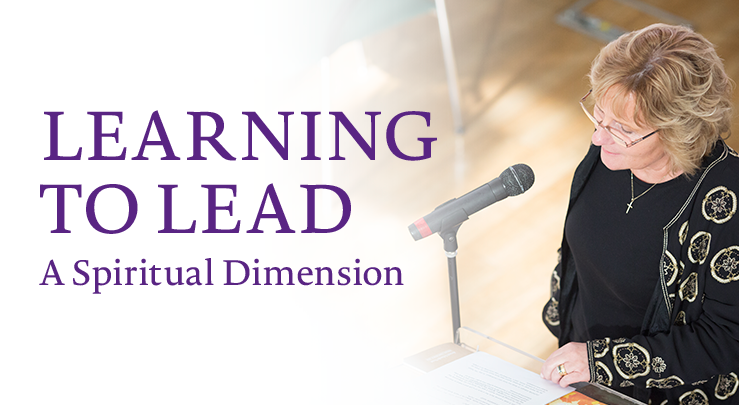At the 2014 Avanti Schools Trust Conference, Mary Lawson invites us all to become leaders, painting for us a vivid picture of leadership in a far more spiritual guise.
Here I am – a committed Christian, Principal of Krishna Avanti Primary School in Leicester – a faith school based on the Hindu-Vaishnava teachings of Chaitanya. And you may be asking “Why?” An excellent question really. What do I really know about the intricacies of this particular faith? How could I possibly lead? Well, I didn’t arrive here for a lack of a job and a need to find one.
Prior to joining Krishna Avanti I was the Director for Education for the Diocese of Leicester. Within the Diocese I had 97 schools, a multi-academy trust and we were an accredited sponsor. I was also Chief Executive of two businesses within this wider family of education provision. Certainly enough to keep me busy and challenged, to say the least.
So my move over to Krishna Avanti might be seen as an extra-ordinary move, and a ‘backwards’ one, returning to a single school environment. Well, the title of my talk is ‘Learning to Lead: A Spiritual Dimension’ and hopefully as I elaborate, you will see and understand, giving cause to reflect on your own journeys here and how you move forward from here back to your schools.
Let me start with an unreferenced quotation: “It takes a special person to light that fire, to raise our children’s expectations for themselves and never give up on them, no matter how challenging it might be.” All of us are here because at some point somebody did that for us.

“Schools are about allowing children and communities to grow and flourish. Like plants, they also need to be nourished and cared for”
Faith and education have been linked for just over two hundred years, since the National Society embarked on their ambitious mission to create a school for every parish in the country. These schools were set up fifty years before the state took an interest in education for all. All schools, and especially those with a faith foundation, are about allowing our children and our communities to grow and flourish. Like plants, they also need to be nourished and cared for. I believe that in schools this is achieved through the spiritual dimension of headship and leadership.
Sharing the leadership
Both of my previous headships were in schools which were vulnerable and each time their OfSTED’s were due! Turning these schools around was indeed very hard work – certainly not a 9–3 job with long holidays – as many people believe! Turning them around with all the staff and governors and parents took total commitment; it was indeed very fulfilling and indeed a joy.
To have a Good/Outstanding school where the best is offered to all children is amazing; a place where all were happy and where all flourished; where solid foundations are built in each child, through values, faith, care and passion for what is right for every individual.
In some cases the safe, secure supportive and happy environment we provide in our school is potentially the only place our children have that feeling. This was certainly the case when I was the head of a school in the 8th most deprived part of Leicestershire, where the majority of the children at the school were very, very needy. They appreciated everything you did in such a simple way; it was, I have to say very humbling.
What made it possible to transform them, was being able to engage all the staff and governors in developing and delivering a shared vision for the school. As a head, it is impossible to achieve success on your own; it is essential that we encourage and empower every member of the team to lead. Some will embrace the opportunity more than others but it’s my firm belief that we are all guided in what we do and where we go in life. Some people call this ‘destiny’. Others, with a deeper spiritual belief, will ascribe that to God.
[box size=”normal” icon=”” border=”none”]In 2004, an OfSTED publication offered a description of what a spiritually developed pupil might be like at the end of their schooling. One phrase sticks out above all others – that a spiritually developed person will show “a readiness to challenge all that would constrain the human spirit”. It goes on to list the kind of things that do this, for example:
[unordered_list style=”bullet”]
- poverty of aspiration;
- lack of confidence and belief;
- moral neutrality / indifference;
- force;
- greed / self interest;
- injustice;
- fanaticism / narrowness of vision, and;
- sexism, racism, and other forms of discrimination.
[/unordered_list]
This list reminds us all that spiritual development is not only about your inner life but also about the impact that you make on the world.[/box]
Witnessing a cultural shift
In all the schools I have worked in, the one that I found most draining was when I was a deputy headteacher, prior to my first headship. The school took virtually no account of spiritual wellbeing. No RE was taught, as they believed having ‘assembly’ (not Collective Worship) 2 or 3 times a week covered it all! It was so much easier for the headteacher (and therefore the staff) to handle.
There was also an issue about these assemblies – they were all based on work done in class, funny stories and of course moral issues. Certainly no mention of faith, any faith, or God, or even prayers! This, I was told, was more than enough and certainly covered Religious Education! My request for worship to include stories, references, prayers for all faiths, was scorned. I wonder what words you would use for the ethos of this school? It was at this point that I had to look further. I wanted to lead a school, to guide the staff to create a special place for children, but I knew it had to be a school where faith was fundamental – a Church of England school.
There have been all kinds of cultural shifts since then; one of the most notable being the re-emergence of spirituality in our society as a whole, and in educational thinking. Supporting pupils’ development in ‘Spiritual, Moral, Social, and Cultural Education’ has been a key purpose of education since the 1980s, and more recently, renewed emphasis of this in OfSTED’s framework from 2012 onwards.
In order to support Spiritual, Moral, Social, and Cultural development there has to be a shared staff understanding of what each of these areas includes. Spiritual development is the development of the inner being which engages and sustains us in life, and for many people with religious beliefs, this continues when we die. It may be seen as the development of a sense of identity, self worth, personal insight, meaning and purpose, the development of a child’s ‘spirit’, soul and personality or character, the growing ability of children to recognise and act on the insights, principles, beliefs, attitudes and values that should inspire or guide them in life.
Our school curriculum is intended to provide opportunities for this aspect of the individual to develop, under the banner of “awe and wonder”! Doesn’t this enable all of us to look within ourselves at our relationships, at the wider world, at our vision of the divine or the ultimate reality with characteristics of courage, hope, acceptance, strength and love, so that we and all our children and students can face the sufferings, challenges and opportunities of human life in its fullness.
Let me now focus on some aspects of what the spiritual dimension of leadership is.
#1 We are all spiritual beings
To start with, we are all first and foremost human beings; like the parents, staff, governors and every child in the school. Children do find that very hard to believe at times! But simply as human beings, we need to take the reality of their personal spirituality seriously. They too are spiritual beings with souls to be nourished and they need to recognise this and work on their own spiritual intelligence and spirituality.
#2 Take responsibility for spirituality
The next dimension follows very straightforwardly – all the staff, governors and pupils with whom we work and for whom we have a responsibility, are also human beings. They too are spiritual people whose spiritual intelligence needs to be recognised and developed. Failure to do this is a failure to work with the whole child and every child does matter. Depsite this phrase being dropped by the present Government, it hasn’t been dropped in any of the schools that I’ve had the privilege to be head – only I say “Every child matters to God.”
We all must note that we don’t live in isolation, as separate individuals, but are made for community and communion with one another as well as with God. The nurture, care and development of everyone’s spiritual life is set within our communal life together.
Someone once said that “Before you are a leader, success is about growing yourself. When you become a leader, success is about growing others”. In our schools, it’s all about growing others, our pupils and the school community.
#3 Do you have what it takes?
Thirdly, we can all be leaders and leadership carries with it a spiritual responsibility. Leadership is about vision and direction. It is about ‘administration’ in the sense of being the driver, captain, helmsman or woman of a ship – steering the vessel on the correct course; avoiding the dangers wherever possible. This takes real commitment and also takes courage.
Leadership requires a degree of personal security and calm; it requires the capacity to be still in the midst of the storm, calm in the face of panic, thoughtful when emotions are running high. Leadership requires the ability not just to know something but to know how to use that knowledge – that is, it requires discernment and wisdom. Leadership requires energy and focus and faithfulness. Leadership requires care and compassion. All of these – calm, thoughtfulness, wisdom, discernment, faithfulness, care and compassion – are all spiritual qualities.
[quote style=”boxed” float=”right”]”No teacher can be an island. An outstanding head will never use I but always We“[/quote]
In the Bible, Paul describes the fruit of the spirit as love, joy, peace, patience, kindness, goodness, faithfulness, gentleness and self control. Good leadership is marked by all of these. Leadership is also about seeking the very best for the people involved in the life of that institution, and for the good of the institution as an entity itself. This responsibility is a spiritual activity because it is about the total wellbeing of each child, from all backgrounds, creeds, colours, faiths, each member of staff, and the corporate life of the school.
The secret to an outstanding school
As principal of the school, yes, you are the leader of many things. A headteacher has to be the educational leader, the business leader and so on, but you are also the spiritual leader, and to ignore this dimension will be to diminish the whole of the head’s leadership role, capacity and influence.
A principal is quite simply the spiritual leader of the life of the school community. What they do to tangibly create this spiritual environment in and around the whole school community is, in my view, what makes the difference between an average headteacher and an outstanding one. If it’s done passionately and genuinely you can feel it when you enter a school.
But the secret behind an outstanding school is a team of people who are drawn to the same path – striving for the best and leaders of not only the children within the classroom but for the wider school community. No teacher can be an island. An outstanding head will never use ‘I’ but always ‘we’. An outstanding school has to have the total commitment and drive of everyone – ‘we’.
It needn’t be lonely at the top
In April 2010, I found myself in a very privileged position, having been offered the job of Diocesan Director of Education for the Diocese of Leicester. I have to say on that first morning it was a very exciting but daunting (even scary!) place to be. 97 schools in the Diocese and a very small team of staff, as well as me!
For those of us that are principals, chairs of governors or chairs of trusts, it can also be relatively lonely. Everyone expects us to have the answers to every possible challenge and problem. But, we are also human! We also need your support to keep us going along that path.
The following poem is called ‘The Road Not Taken’ by Robert Frost. It’s of particular significance to me and I felt the need to share it. Many times in life we reach a crossroad; which path to choose? Do we have the courage and conviction to follow? In chapter 4 of the Gita it says that Krishna created the many paths upon which we all walk. He advises us to continue working, but without attachment, for the paths and ways created by Him are formed so as to rediscover our real nature and again share with love and freedom in His existence.
[box size=”normal” icon=”” border=”none”]The Road Not Taken
Two roads diverged in a yellow wood,
And sorry I could not travel both
And be one traveler, long I stood
And looked down one as far as I could
To where it bent in the undergrowth;
Then took the other, as just as fair,
And having perhaps the better claim,
Because it was grassy and wanted wear;
Though as for that the passing there
Had worn them really about the same,
And both that morning equally lay
In leaves no step had trodden black.
Oh, I kept the first for another day!
Yet knowing how way leads on to way,
I doubted if I should ever come back.
I shall be telling this with a sigh
Somewhere ages and ages hence:
Two roads diverged in a wood, and I—
I took the one less traveled by,
And that has made all the difference.[/box]
Putting our ethos into action
If within our schools we can distil our ethos, values and spiritual purpose into a shared belief and common purpose, then everyone can take a lead in the school, regardless of that person’s status. In fact, some of the best leaders I had in my previous school were a pair of teaching assistants, who really ‘got it’. They emanated that ‘Ready Brek’ glow to everyone around them – to be honest, putting some of the teaching staff to shame!
Everything said so far applies to leadership in any school – any good school. Every school has a spiritual ethos. It may be entirely secular or a generalised spirituality which recognises the broad brush spiritual reality of people, or an Islamic, Christian, Sikh, Hindu or Jewish spirituality, where the school is rooted in these faiths.
So let’s focus on the spiritual dimension of leadership; something that should be very clear in the leadership of schools within the Avanti Schools Trust family. Christian spirituality is rooted in the following of Jesus Christ. For our schools it is rooted in the teachings of Chaitanya. To quote from Ranchor Prime’s book The Birth of Kirtan:
[quote]“Chaitanya ignited a spiritual revolution. He defied the superficial, oppressive and sectarian boundaries of His times by declaring that pure love for Krishna (God) is the privilege of all souls regardless of their caste or station in life. He taught and explained how this love inspires compassion for all beings – He proclaimed the precious treasure of this love is within our hearts and that everyone is entitled to it.”[/quote]
He taught that God has many names, each of them empowered to awaken the dormant love within our hearts. He fearlessly confronted prejudice of the oppressive caste system. He thought that sincere, loving intent was all that mattered; not the material value of things.
Chaitanya extended his mercy equally from kings and to stray dogs. One qualification is to open your heart to accept His grace – Jesus did the same – He proclaimed 2 commandments, not 10. To love your God and to love one another. There are so many similarities between the teachings of both men. So, can we take the teachings of both, reflect upon them and build them into a set of spiritual secrets for school leaders? Yes I think we can.
A healthy spiritual diet
In my experience, we need to ensure we plan our work, allowing space for the other things that nourish and refresh us, to delegate – ensuring the priorities are kept in focus. Then we might ask for both ourselves and for our schools: “What feeds our spiritual life?” What has continually fed God’s people down through the ages? The answer is our holy texts, prayer, worship, fellowship, giving, witness and work. Being with God, stillness and meditation, trust and obedience in God, openness, working for equity and justice, proclaiming the good news to the world, and wishing goodness for all life and the world. These are the things that nourish spirituality.
If we are to lead, then we also need to be growing in our spiritual life. We need to offer a balanced diet in our schools – a balance of different traditions – a balance of activity and stillness and a balance of scripture and prayer.
The most important aspect of leadership is recognising its spiritual dimension. It’s a role into which we can grow and develop. It’s a role which is, I believe, God-given and it’s God who creates that path, who leads you to the crossroads. Which path would you take?
My career has been so fulfilling – the joy of each and every child and the school’s ethos blazing out for all to feel and see, observe, and be drawn to. My question to you all: look at the pathway ahead. How will you find your place in contributing to the leadership within our schools in more ways than just academic attainment, so that everyone in the whole school community can benefit?
I will leave you now with a quote from Eleanor Roosevelt: “A good leader inspires people to have confidence in the leader. A great leader inspires people to have confidence in themselves” So go out today and find the confidence to be brilliant, and inspire everyone around you.



